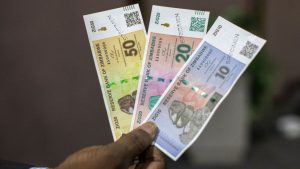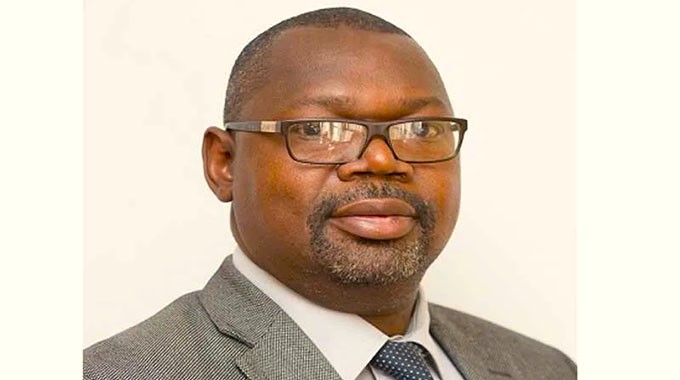- Have any questions?
- +263 719 632 817
- editor@easterntimeszim.org
Five (5) suspected Mutare money changers enter third week detained in remand

Prominent Mutare lawyer Chibaya’s unprofessional conduct investigation builds up
May 3, 2024Five (5) suspected Mutare money changers enter third week detained in remand

FLASHBACK...Mutare money changers that operated downtown are nowhere to be seen following the ongoing police blitz arresting forex traders.
…As Gvt remains resolute on unleashing the full wrath of the law on illegal forex dealers
Ngoni Dapira
FIVE suspected money changers in Mutare remain detained in remand commencing their third week today (Wednesday) after being arrested on 22 April.
The five suspected foreign currency (forex) dealers namely, Dzidzai Chitapata, Angeline Pfumanda, Brian Nyakurerwa, Venencia Machata and Carol Mushamba were separately apprehended on 22 April in an ongoing police blitz on illegal foreign currency dealers. The blitz targeted suspected dealers downtown in Mutare at the Club Mandisa parking space, popularly known as Moto Moto area and at the Mukuru/Manica Post parking space uptown, where illegal foreign currency trading is known to be rife.
The five are being charged for contravening section 5(1) (a) (ii) as read with subsection 3 of the Exchange Control Act Chapter22:05. As read with Section 4(1) (a) (1) of the Exchange Control Regulations Statutory Instrument 109 of 1996 of illegal dealing in foreign currency.
Two of the five suspected money changers applied for bail through their lawyers, but remain in custody at Mutare Remand Prison with the others until their bail ruling hearing, whilst the other three were given a routine remand till 17 May for their bail hearing or judgment since they did not apply for bail. This will mean 24 days in remand for the other three accused forex dealers.
Chitapata (25) appeared before Mutare magistrate Perseverance Makala yesterday (Tuesday) who postponed her bail application ruling to today. Tinotenda Muzondo was representing the State, whilst Baxton Nakwakwilo of Gonese and Ndlovu Legal Practitioners represented the accused.
The other accused, Pfumanda, who also applied for bail is expected to appear in court next week Monday. She would have spent exactly 20 days in remand, excluding the two days they were detained in police custody at Mutare Central Station before going to court on the 24th of April. In the initial court hearing on 24 April, the State represented by public prosecutor Nyasha Mukonyore opposed bail, citing that the accused were facing a crime of national concern which may entice them to abscond or to interfere with evidence or witnesses.
According to the State, the accused persons were separately found in possession of bank cash withdrawal cards not belonging to them and were found in suspicious circumstances in hot-spot areas known for illegal foreign currency trading, which made them appear to be forex dealers, leading to their arrest after they failed to ‘convincingly’ answer questions asked by the arresting police detectives.
The Criminal Procedure and Evidence Act [Chapter 9:07], as its name implies, regulates the procedure that must be followed in criminal investigations and prosecutions, and the evidence that may be produced in criminal cases. In Zimbabwe the rights of accused persons stipulate that every accused person has the right to a fair trial by an impartial judicial officer. Whilst there are no set out pretrial custody time limits for remand in Zimbabwe, Nakwakwilo claims the charges on his client Chitapata are being fabricated against her and her continued detention in remand is an infringement on her rights.
He also argues that she is not a fugitive from justice. Nakwakwilo added that he intends to apply for refusal of further remand if the State does not attend to the matter today. In Malawi the legal custody time limit for pretrial detainees is 14 days.

Some of the new ZiG notes now in circulation.
Zimbabwe on 5 April phased out the bond notes and introduced the Zimbabwe Gold (ZiG) currency which will trade with other foreign currencies, including the US dollar. Government has been out-and-out and not mincing words on unleashing the full wrath of the law through on-going police blitz operations meant to protect the ZiG currency from arbitrage by black market forex traders that manipulate the currency exchange rates.
On the contrary, Thomas Masese an economist based in Mutare believes the arrest of money changers won’t stop the depreciation of ZiG, urging the new Central Bank governor Dr John Mushayavanhu to focus more on market led economic interventions and confidence building progammes in the market to promote ZiG.
Masese said this during a Zimbabwe National Chamber of Commerce (ZNCC) Manicaland chapter 2024 Monetary Policy Statement (MPS) review breakfast meeting held in Mutare last month, which was officiated by the new Reserve Bank of Zimbabwe (RBZ) governor Dr John Mushayavanhu.
He said the black market can be driven out without coercion through the police if government strategically uses market led interventions. Masese said given the corruption levels in the country, eventually the police and public, including money changers, become one, so the only solution is through market led interventions which should be supported by strict policing, without selective application of the law as was previously done when past currencies were introduced and failed.
“This has been happening before. Due to high unemployment we have a lot of economists on the streets that survive on manipulating the currency exchange rates as their day to day business. We know government is struggling to strike a balance between survival and macroeconomics then there is also politics, this becomes very difficult to manage, but let’s learn from our past mistakes and this time stick to fundamental economic principles to support ZiG,” said Masese in his recommendations to the Central Bank governor at the breakfast meeting.
Following the police blitz on foreign currency traders which started early last month in Harare, shortly after the 2024 Monetary Policy announcement on 5 April, over 70 accused forex dealers have been arrested, mostly in Harare and Bulawayo with Mutare recently joining in the bandwagon. However, investigations by Easterntimeszim reveal that it is too early for the Central Bank to celebrate a victory as the forex traders are operating underground through social media platforms such as WhatsApp, avoiding the police.
On the black market, the currency is allegedly trading at rates ranging from 15 to 20 ZiG for US$1, manipulating the official exchange rate currently at 13.6 ZiG to one US$1.
The RBZ stated that the ZiG notes and coins will be drip-fed into the market in denominations ranging from ZiG1 to ZiG200. The Financial Intelligence Unit (FIU), an arm of the Central Bank, issued a directive to local banks on April 10, advising them about the cash withdrawal limits where individuals will get a maximum of ZiG3 000; corporates ZiG30 000; schools, hospitals, clinics and local authorities: ZiG250 000 (monthly); Government ministries and departments ZiG300 000 (monthly).
The directive further stated that banks are required to undertake due diligence when processing cash requests for customers to ensure the facility is not used for criminal activities. Where a customer has a valid need to withdraw cash above the stipulated limit, the bank shall continue to submit such an application to the FIU, clearly setting out the special grounds for the request.
The FIU will not grant any such requests unless satisfied that no other forms of payment are reasonably available to the customer.


